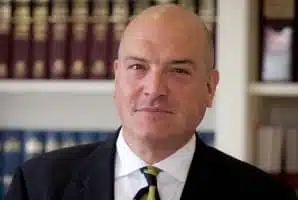Barrister Grahame Richardson of Trinity Chambers on working together in the family justice system and the issue of confidentiality.
Professionals working within the Family Justice system should be aware, in general terms at least, of confidentiality issues. However, they should also be mindful of their duty, and the duty of other agencies in this field, to work together in relation to matters of child protection.
Rule 12.73 of the Family Procedure Rules 2010 in effect provides that it shall not be a contempt of court in relation to family proceedings held in private, for information from those proceedings to be communicated to certain specified persons, or when the court may have given permission in particular circumstances. Of special note so far as this article is concerned, is the fact that such information may be communicated to ‘ a professional acting in furtherance of the protection of children’ ( rule 12.73 (1) (a) (viii) ). So far so good. However, it must be a little disturbing to know that, notwithstanding these provisions, a litigant recently sought the committal to prison of a CAFCASS officer for allegedly being in contempt of court. The conduct complained of comprised discussions between the CAFCASS officer, appointed in private law proceedings pursuant to rule 16.4, and the police. These communications concerned the conduct of the litigant, and his applications to the court for child arrangements orders in respect of his children. At the time the police were investigating certain allegations relating to the litigant and his partner. It may not come as a great surprise to know that the litigant was acting in person.
The matter eventually came before Mr Justice Baker and his judgement was reported (S v SP and CAFCASS (2016) EWHC 3673 (Fam) ). The judge gave careful consideration to the issue of such disclosures. Indeed he felt there is evidence of some uncertainty amongst professionals so far as these matters are concerned. This is perhaps surprising in view of the momentum which most of us thought the ‘working together’ mantra has gained over recent years.
The case involved a long-running and difficult dispute between the parents of two children. Their father, who was seeking a ‘significant custodial sentence ‘ for the CAFCASS officer, and a ‘large six figure fine for CAFCASS’, was a registered sex offender, and was also the subject of a protection from harassment order after being convicted of harassing the children’s mother. There were ongoing concerns about his mental health. Indeed, in March 2014, he had tried to hang himself outside the family home. There had been no direct contact between the father and the two children since this incident.
In addition to complaints made against CAFCASS, the father had made formal complaints against the police and other agencies and individuals. He did have a complaint against CAFCASS upheld which related to the way in which previous complaints were handled.
The discussion which resulted in the contempt allegation occurred after the father had made allegations to the police against the children’s mother, of historical sexual assault and other matters of domestic abuse towards him, some of which dated back to as long ago as 2002. The more recent allegations of abuse included, he alleged, preventing him from having contact with his children. In investigating these allegations, the police officer concerned wanted to have an overview of the long-running private law proceedings. This lead to the controversial conversation between him and the guardian.
Whilst the father’s case so far as the alleged contempt was concerned had an element of the ‘scatter gun’ approach about it, it seems that the crux of his argument was that a discussion about the proceedings in the context of an investigation into allegations of abusive behaviour between these two adults could not, properly be viewed as being in the ‘furtherance of the protection of children’.
Mr Justice Baker noted that many public enquiries have identified the need for agencies to work together to protect children. He went on to say that the Family Procedure Rules must be interpreted and applied in that context. Thus the phrase ‘a professional acting in furtherance of the protection of children’ must be given a ‘broad interpretation’ (paragraph 34 of the judgement). He found that the disclosure of information by CAFCASS to a police officer in a conversation that arises in the course of an investigation by the police about acts of domestic violence or abuse within the family are ‘plainly’ permitted under rule 12.73. The historic matters of abuse would have impinged on the safety and welfare of the children.
The judge felt that there was a ‘measure of uncertainty’, as to how rule 12.73 operates in circumstances such as this. He invited the Chief Executive of CAFCASS to consider whether further guidance for guardians and S.7 reporters is needed. Indeed local authority and independent social workers will sometimes find themselves in similar situations to the guardian in this case. The judge recommended that in cases of doubt, professionals should always, as a precautionary step, apply to the court for permission to disclose information. I am not aware of whether CAFCASS has provided any additional guidance to its officers arising out of this case.
The judge concluded on a positive note so far as the CAFCASS officer in this matter was concerned, saying that she had acted conscientiously and professionally with a proper focus on the welfare of the poor children caught up in the dispute.
Grahame Richardson, Barrister, Trinity Chambers.


